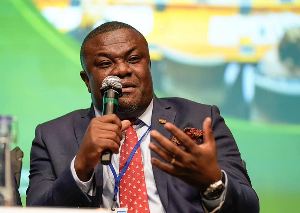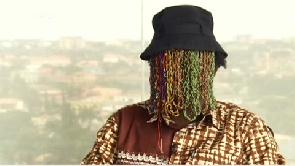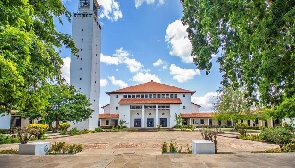As a Ghanaian academic, I have spent the last 6 years of my academic life studying the presence, role, influence and engagement of Chinese actors in Ghana (both state and non-state actors). The presence and activities of Chinese and other nationals in illegal small-scale mining (galamsey) in Ghana is mind boggling.
It should be said, however, that the Chinese involved in the small-scale mining sector belong to a relatively small group of Chinese who are independent, not directly linked to Chinese government, State owned enterprises, large private companies and entities even known to the Chinese embassy, according to Chinese officials in Ghana.
This claim is contrary to the media speculations that Chinese miners in Ghana are directly a result of official Chinese government's policy to encourage Chinese ‘to go out’.
Obviously, several factors account for Chinese migration into Ghana’s gold mining sector, and it’s certainly not a mere coincidence that Chinese engagements in galamsey in Ghana has grown around the same time that Beijing’s political and economic interests in sub-Saharan Africa in general are at an all-time high.
However, the growth in the number of illegal Chinese miners in Ghana in recent years is quite significant. The Ghanaian state has attempted to fight this problem for years. While I believe that in the fight against illegal small-scale mining we have got some things right, I strongly believe that we have missed out on the major things that need to be done to curb it.
First, as a country, we need to properly understand the political economy of galamsey. The current framework of seeing small mining as driven by ‘get rich quick’ mentality instead of seeing it as poverty driven isn’t working. The rise in artisanal mining in Ghana can be attributed to the high rate of youth unemployment and the growing poverty prevailing in many mining communities in Ghana.
Mining communities in Ghana have some of the highest incidence of unemployed youth. Some of these youth were former workers who have been laid off by multinational mining companies, while others are farmers who have lost their arable lands leaving them with the only option of digging for minerals.
The state, large-scale mining companies and the media tend to characterize galamsey as a nuisance, a menace and even a threat to the operators, their communities, concession landholders, and the nation.
But the miners do not usually see their activities as illicit or at least they do not want to accept it as such; because their lives depend on it. Local miners must navigate costly processes along with frequent payment of bribes to landowners and traditional authorities and other middlemen before they can be sure of getting access to a parcel of land.
State policies or lack thereof over the years have frustrated and further marginalized Ghanaian galamsey operators, leading some of them to resort to unorthodox means to continue to stay in small-scale gold mining. If we don’t fix these problems and regularize the industry we are not going anywhere. Second, and more importantly, in addition to developing a stronger legal and regulatory framework, we need to enforce and CONSCIOUSLY let our CURRENT LAWS BITE.
Curiously, Ghanaian law prohibits non-Ghanaians from engaging in small-scale mining. Yet, we allow foreigners to enter Ghana (some of them without valid visas and permits) to engage in a sector that is by law preserved for Ghanaian only. We make it possible for them to partner with local miners, chiefs, and other leaders to introduce a hybrid model of mining that combines mechanized industrial mining techniques and equipment (trench drills, wash plants, insuction equipment, bulldozers, excavators etc), which defies the definition of small-scale mining, to destroy lands and properties within days.
We allow our laws to sit idle without biting. We see foreigners breaking the laws and we turn back to blame them. Government officials do it. Journalists do it. Security agencies do same. Affected local communities do it too. We have been doing it well: China bashing; blaming the Chinese for the bad effect of galamsey, claiming that their presence in the artisanal mining sector in Ghana is the main cause of the destruction of our water bodies, environmental degradation and social conflict. It’s a hoary claim that won’t die. But it must be harder to defend it (now).
We need to move from the tired idea that China is the cause of our woes. They are not; they have just taken advantage of our negligence, lack of commitment and irresponsibility. They know we are complicit. They know how to get us. They think we are weak. But are we weak?
Our political leaders must know better. The local miners who partner with the Chinese must know better; but what options do they have when they think they can survive on galamsey. The local chiefs must know better but what do they lose if they don’t. We must know better.
So really at this point, all the talk of Chinese destroying our water bodies should be over with. But it won’t be, because the notion that China is to blame feeds into a bigger issue of how others are always the cause of our problems.
It'll take brave leaders and citizens to understand that it's not true. The Chinese are not to blame; we are. The foreigners and Ghanaians operating illegally are real; we must deal with it now. But will we? Because so far what we are doing is not fighting the menace; we are talking and talking… and that's not good enough!
The author is a concerned Ghanaian. Isaac Odoom, PhD Email: kojo.odoom@gmail.com
Opinions of Thursday, 6 April 2017
Columnist: Odoom, Isaac



















